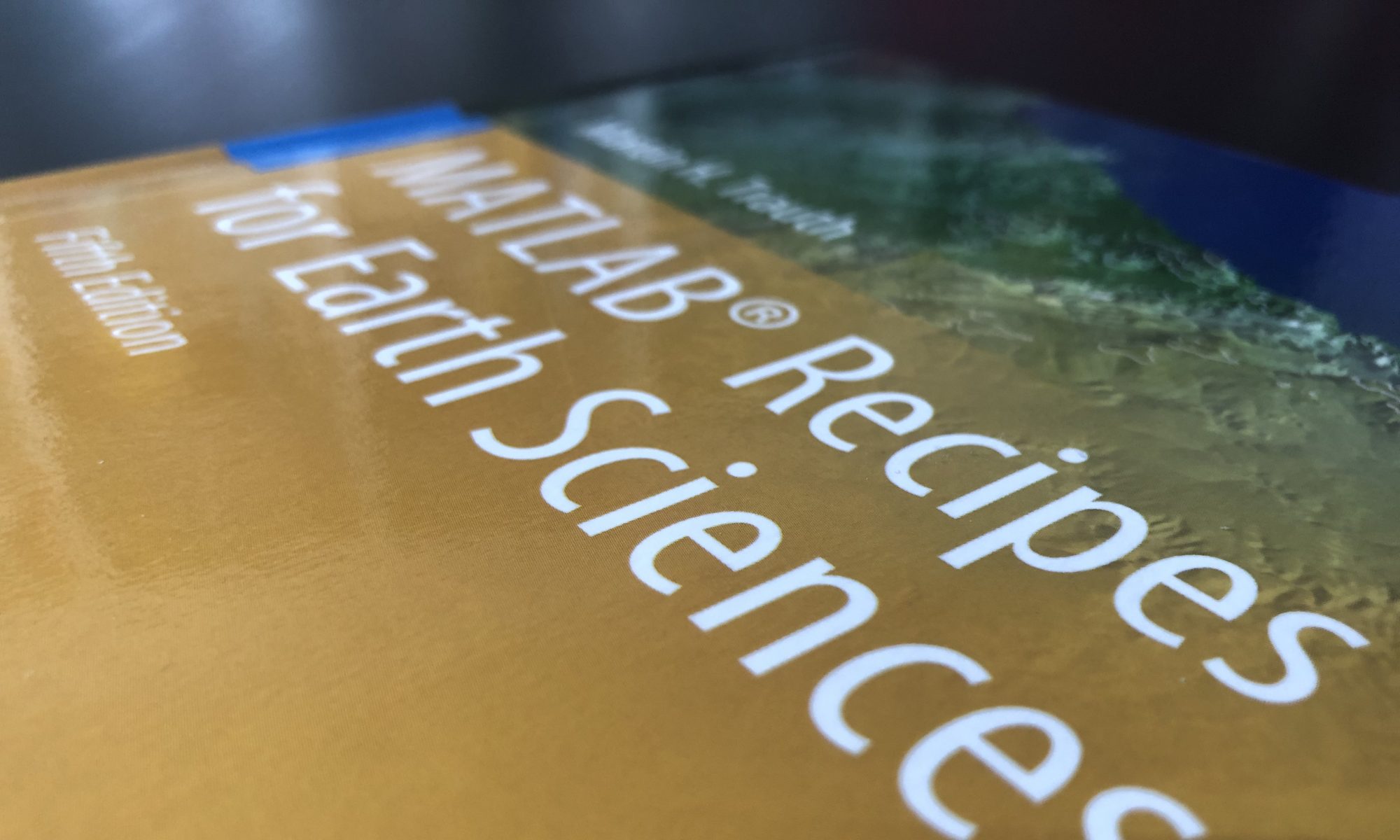Next week, according to the information of Springer-Nature, the proofs of the second edition of “MATLAB and Design Recipes for Earth Sciences” (MDRES) will arrive on my desk, now with a new title “Collecting, Processing and Presenting Geoscientific Information” and the old title as the subtitle. According to Springer-Nature, the Hardcover book will cost € 90.94, the eBook € 71.39. This is of course a lot of money, especially for students who need not only this, but many other books to study.
Some universities have access to the electronic version of the book, along with many other books that hardly anyone reads. Unfortunately, our library has no access, we are a university with a rather small budget. Every year the university library asks us to cancel journal subscriptions; we only subscribed to a handful of journals. We usually ask authors to send us their author copy, which is fine, but some are not responding – or not responding fast enough to continue working on projects or student’s homework. I will not talk about all the illegal ways that are otherwise used to get the PDF file of an article.
Geoscience students need a laptop, a geologist’s hammer and much more. There is never a discussion that hardware may cost money. By hardware I mean an electronic device like a laptop or a hammer, but also printed books. For software, e.g. the computer code running on the laptop or the electronic version of the book which is delivered as a PDF file, hardly anyone is willing to spend money. Every year I’m accused of using the MATLAB commercial software instead of using free alternatives like R or Python. I am actually very tired to tell students that MATLAB provides certified code, a complete documentation and an excellent support – for just € 35 plus tax. An excellent service, that’s also the reason why good ebooks – and computer software – cost money. Someone pays the bill, there is no free lunch. There is also support for Python from companies such as Facebook, Google and Microsoft – free does not mean that there is no money involved.
And that many people at MathWorks and Springer work full-time to make their product as good as possible. Free software is written by enthusiasts who get their income for other jobs. Of course you can not expect them to guarantee the correctness of the code or to offer support. I also get a salary for my work at the university, for doing research and teach students in data analysis in the geosciences. I write my books usually outside normal working hours, which takes a full year or even more to be completed. I worked on the first edition of MRES, published in 2006, even on new year’s eve – part of Chapter 9 was actually written on that evening. And both MathWorks and Springer support me in writing books, with book development licenses of MATLAB, I get in direct contact with the engineer who has programmed an algorithm to which I have questions, and I also often meeting with Springer editors discussing current and future books.
Typesetting also costs money, usually done by designer Elisabeth Sillmann at blaetterwaldDesign, and proofreading, done by Ed Manning since many years now, both of these services in the order of € 5,000 for a 300-page book. Springer does an excellent job promoting the books, both on their webpage, at conferences and elsewhere. Booths at conferences cost money, for both publishers and software companies, travel expenses have to be payed, and much more. In fact, I am told, I ultimately earn more on the book than the publisher after the expenses have been deducted. For software it is very similar, but strangely software (unlike hardware) should not cost anything.
Yes, the prices are a bit high – € 71.39 for a PDF file of the book. Of course, the legal buyer pays for the illegal readers, pirated copies of the books are everywhere. One day after the first ebook of MRES appeared on the bookshelves a few years ago, I found it online on one of the relevant websites. There, someone uploaded it to get some “likes”. It was downloaded almost 1,500 times in one single day. That was in the time when I sold about 1,000 copies – per year! Unfortunately Springer never introduced a proper digitial rights management; instead there are people permanently scanning the web for illegal downloads. MathWorks has an efficient licensing and activation system for its software.
What is the solution to the problem? Maybe the way Apple has gone with iTunes many years ago: make it cheaper: € 9.99 for a CD, € 0.99 for individual songs – to gether with a digitial rights management against piracy. There is MyCopy by Springer, a printed copy for people with eBook access through libraries, but that still costs € 24.99. A survey of students showed that they would like to pay € 9.99 for my ebook, if the library does not have access to the book. MATLAB is already available for an unbeatable low price for students. Nevertheless, we are currently working to make it even cheaper for students by negotiating a campus license. Similarly, Springer books that can not be offered through university libraries should cost € 9.99 for students, € 0.99 for individual chapters. The model should also apply to journal articles, € 0.99 for an article, which should also be affordable for students.
I am still working on this text. Comments via email or following this text are welcome!

